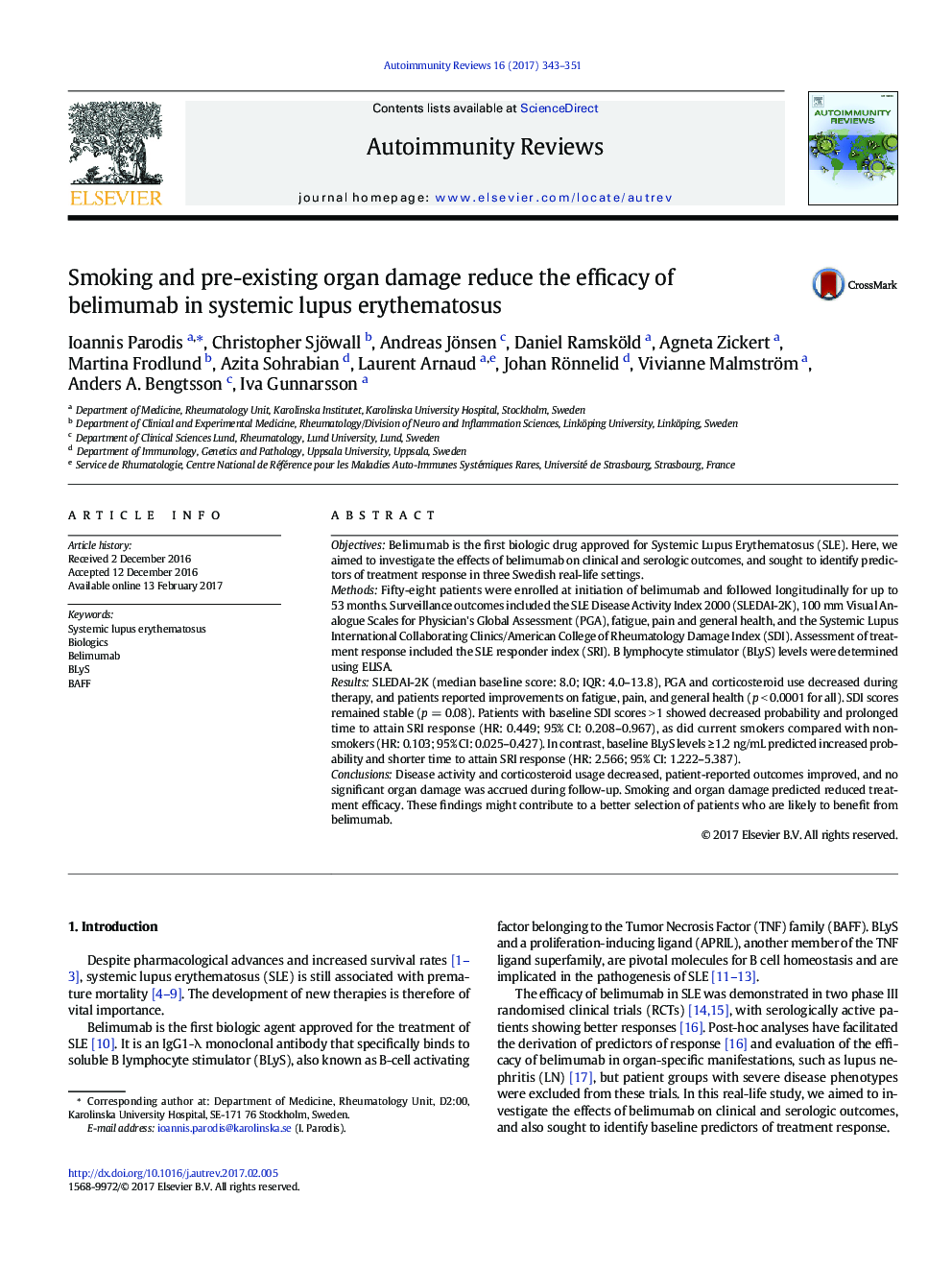| کد مقاله | کد نشریه | سال انتشار | مقاله انگلیسی | نسخه تمام متن |
|---|---|---|---|---|
| 5665430 | 1407750 | 2017 | 9 صفحه PDF | دانلود رایگان |
- SLE disease activity and corticosteroid usage decreased during belimumab treatment, and no damage accrual was observed.
- Patients reported improvements in fatigue, pain, general health and functional status.
- High disease activity, high steroid dose and high BLyS levels at baseline predicted beneficial treatment outcomes.
- Smoking and established damage, especially previous thrombotic events, were predictive of unfavourable treatment outcomes.
- Smoking cessation should be encouraged prior to treatment with belimumab.
ObjectivesBelimumab is the first biologic drug approved for Systemic Lupus Erythematosus (SLE). Here, we aimed to investigate the effects of belimumab on clinical and serologic outcomes, and sought to identify predictors of treatment response in three Swedish real-life settings.MethodsFifty-eight patients were enrolled at initiation of belimumab and followed longitudinally for up to 53 months. Surveillance outcomes included the SLE Disease Activity Index 2000 (SLEDAI-2K), 100 mm Visual Analogue Scales for Physician's Global Assessment (PGA), fatigue, pain and general health, and the Systemic Lupus International Collaborating Clinics/American College of Rheumatology Damage Index (SDI). Assessment of treatment response included the SLE responder index (SRI). B lymphocyte stimulator (BLyS) levels were determined using ELISA.ResultsSLEDAI-2K (median baseline score: 8.0; IQR: 4.0-13.8), PGA and corticosteroid use decreased during therapy, and patients reported improvements on fatigue, pain, and general health (p < 0.0001 for all). SDI scores remained stable (p = 0.08). Patients with baseline SDI scores > 1 showed decreased probability and prolonged time to attain SRI response (HR: 0.449; 95% CI: 0.208-0.967), as did current smokers compared with non-smokers (HR: 0.103; 95% CI: 0.025-0.427). In contrast, baseline BLyS levels â¥Â 1.2 ng/mL predicted increased probability and shorter time to attain SRI response (HR: 2.566; 95% CI: 1.222-5.387).ConclusionsDisease activity and corticosteroid usage decreased, patient-reported outcomes improved, and no significant organ damage was accrued during follow-up. Smoking and organ damage predicted reduced treatment efficacy. These findings might contribute to a better selection of patients who are likely to benefit from belimumab.
Journal: Autoimmunity Reviews - Volume 16, Issue 4, April 2017, Pages 343-351
